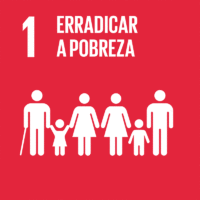Ciência_Iscte
Publicações
Descrição Detalhada da Publicação
The impact of post-war transnational consultants in housing and planning development narratives: The case of Otto Koenigsberger
Título Revista
Urban Planning
Ano (publicação definitiva)
2022
Língua
Inglês
País
Portugal
Mais Informação
Web of Science®
Scopus
Google Scholar
Esta publicação não está indexada no Overton
Abstract/Resumo
In the aftermath of the Second World War, the progressive dismantling of previous power‐nations and the independence of many countries have contributed to new political, economic, and technical processes and highly mobile flows of people and ideas. Yet, research has overlooked knowledge channels outside of mainstream geopolitical frameworks. In particu‐ lar, the role and power of international aid organizations, their development assistance programs, and the impact of the emergent new actor of this phenomenon—the consultant—in housing and planning narratives deserve to be examined. This article proposes to do so by exploring the historical contribution of Otto Koenigsberger (1908–1999) as part of the first generation of CIAM‐UN experts. His view of “housing as a problem of numbers” engaged him on a lifelong pedagog‐ ical and transnational political project of decolonizing architectural education and the redefinition of both the profession and the professional. By emphasizing the importance of (a new) training, it raises questions on what sort of knowledge housing may require, by whom knowledge competencies may be conveyed, and how that knowledge should be instru‐ mentalized. The article draws on extensive archival research, findings on the protagonists and institutions involved, and the author’s interviews with key players that shed light on evolving conceptualizations of “development,” built environ‐ ment, educational programs, and knowledge production. Ultimately, examining the terminology underlying the expertise delivered through consultancy reports vis à vis the education and skills needs contributes to a better understanding of the foundations of housing as a problematized field of architectural education.
Agradecimentos/Acknowledgements
--
Palavras-chave
Architectural education,Consultancy,Housing missions,John Lloyd,KNUST,Otto Koenigsberger,United Nations
Classificação Fields of Science and Technology
- Sociologia - Ciências Sociais
- Geografia Económica e Social - Ciências Sociais
Registos de financiamentos
| Referência de financiamento | Entidade Financiadora |
|---|---|
| CA18137 | COST Action |
| UIDB/03127/2020 | Fundação para a Ciência e a Tecnologia |
Projetos Relacionados
Esta publicação é um output do(s) seguinte(s) projeto(s):
Contribuições para os Objetivos do Desenvolvimento Sustentável das Nações Unidas
Com o objetivo de aumentar a investigação direcionada para o cumprimento dos Objetivos do Desenvolvimento Sustentável para 2030 das Nações Unidas, é disponibilizada no Ciência_Iscte a possibilidade de associação, quando aplicável, dos artigos científicos aos Objetivos do Desenvolvimento Sustentável. Estes são os Objetivos do Desenvolvimento Sustentável identificados pelo(s) autor(es) para esta publicação. Para uma informação detalhada dos Objetivos do Desenvolvimento Sustentável, clique aqui.

 English
English




